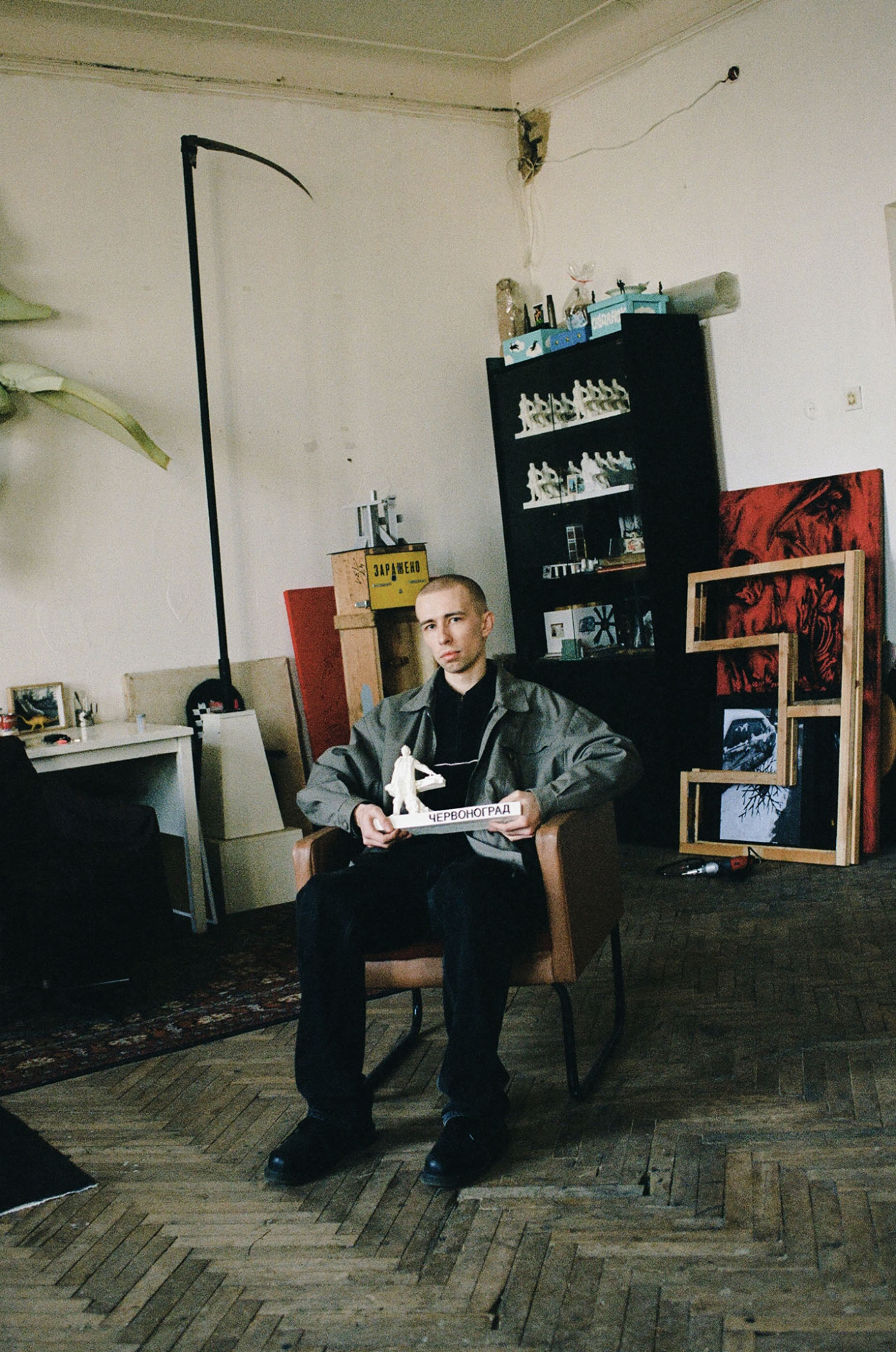
Art may not stop bombings or end suffering. But in Ukraine, it is not powerless. To mark the 27th anniversary of the signing of the Ukrainian Constitution this summer, CULTURED brings together conversations with three Ukrainian artists. Through their expressions of art and resilience, they condemn the war and help us bear witness to the ways that violence has become ingrained in their everyday lives. This conversation is the second in a three-part series; read the first installment here.
Soon after the full invasion of Ukraine, artist Yuriy Bolsa returned to Lytovezh village, where he grew up. Although he made his name as a painter, he was tired of working in the medium. Instead, he turned to his children's books and toys for inspiration. Now, under the shadow of war, he is setting out on a new artistic path. As a young artist whose work has been displayed throughout Ukraine, the conflict is shaping his everyday life—but he also yearns for the opportunity to explore topics beyond the war. In this conversation, the 26-year-old artist talks about fighting anxiety, redefining childhood traumas, and making meaning out of destruction.
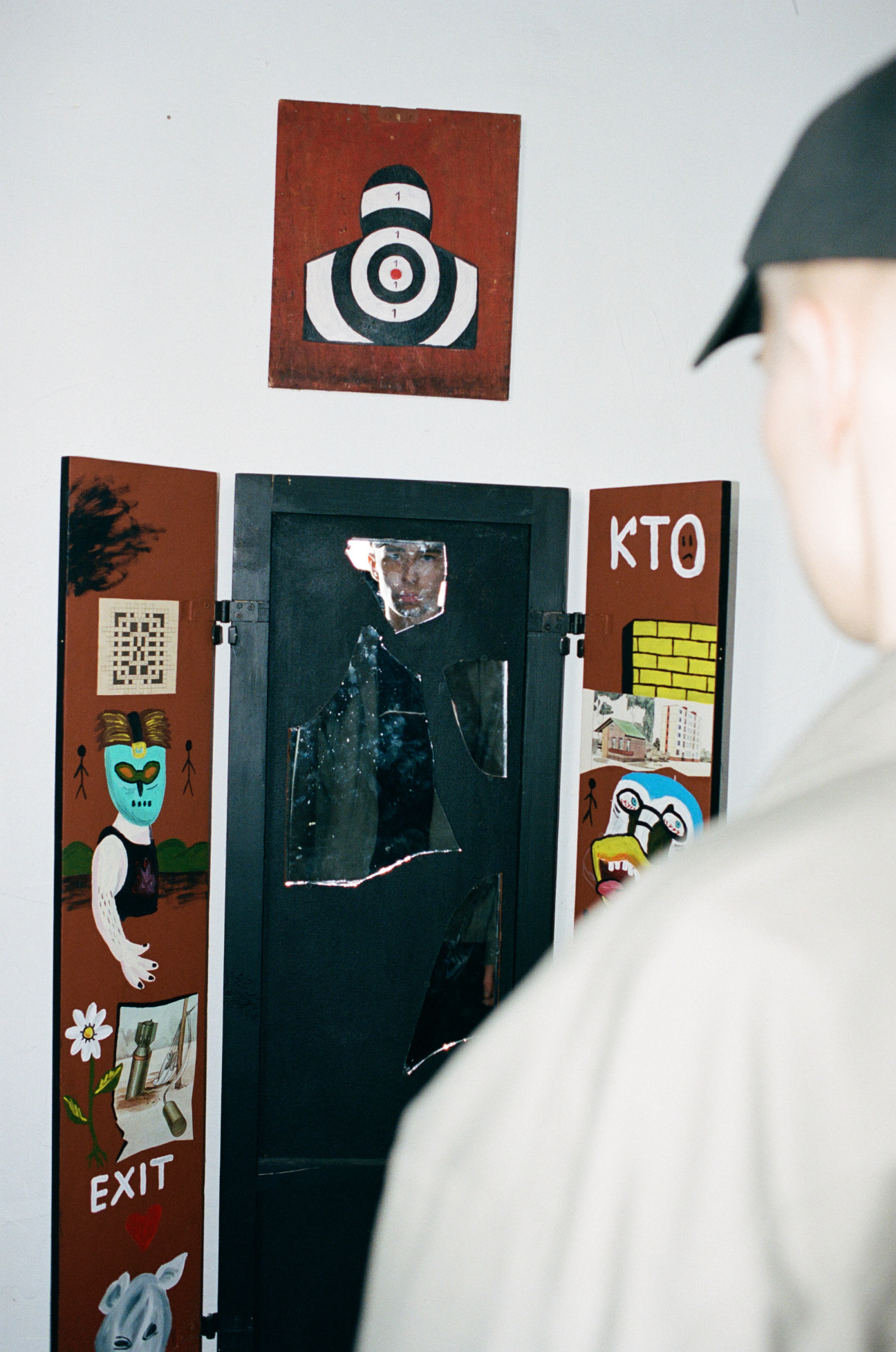
CULTURED: Please describe your work.
Yuriy Bolsa: I used to work only with personal themes, illustrating some event in my life, or some trauma that changed me and helped me become who I am. When I lived in Chervonohrad, I didn't go out. I didn't communicate with anyone. I lived in a one-room apartment with my mom, so my work was mostly based on personal things. When I came to Kyiv, my work became more socially and politically engaged.
I also started to work more with architecture, because to me, it is a symbol of destruction and of the replacement of something interesting with something less durable. This is such an important symbol because it's been constant throughout my life—something always happened, something was always destroyed. So my work is more political now, but still based on my experiences.
CULTURED: Was art ever a hobby for you? How did it turn into a job, if you can call it a job? How do you perceive it for yourself?
Bolsa: I've never really called it work, because for me, painting is not work—it's not commissions, portraits, or anything else. It's never been a hobby either. A hobby is something you do when you have free time. Art is the only thing in life that I like. I don't like to do anything else. It’s something that helps me to exist in a more stable psychological state because it's a good practice as therapy: you have less space in your head to experience negative thoughts. Art looks less scary to me than real life.
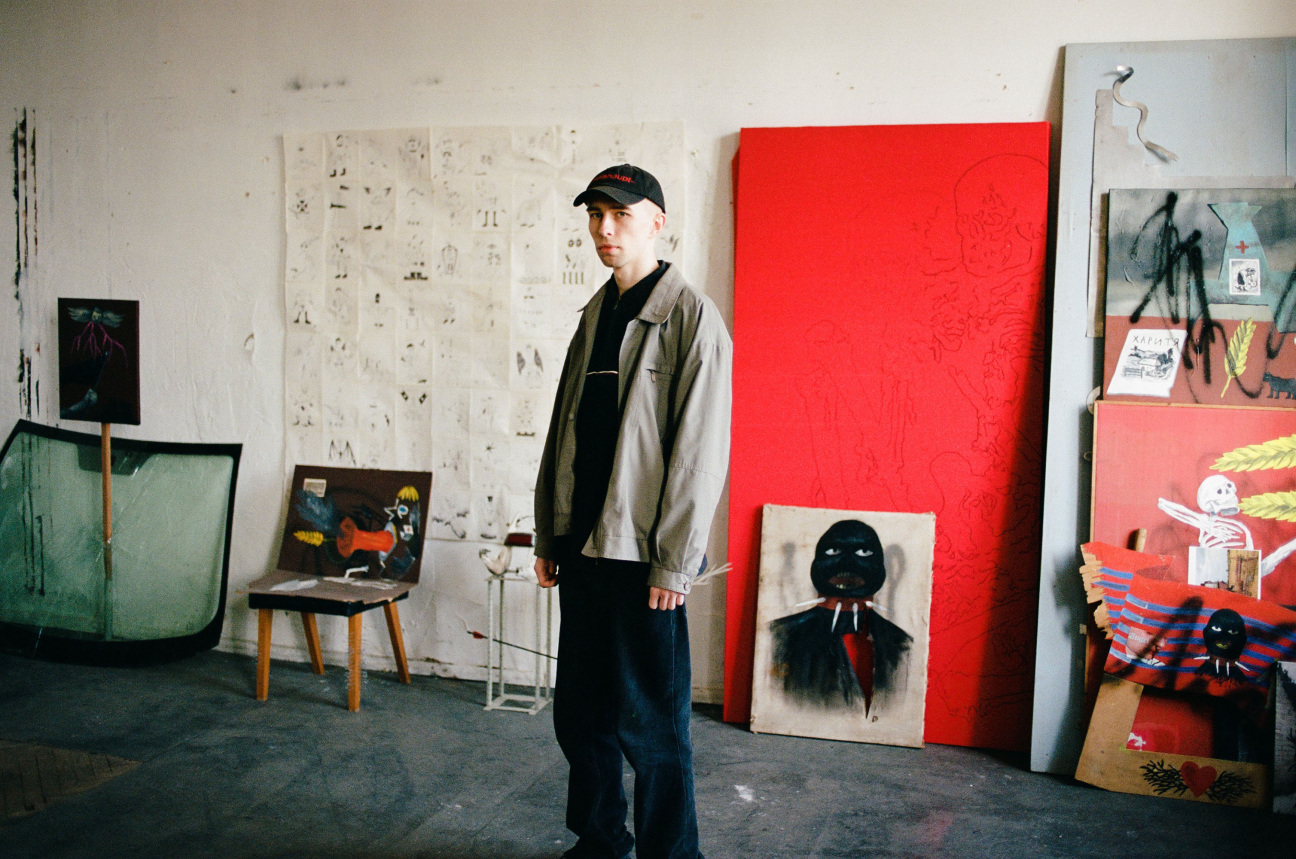
CULTURED: Can you describe what your usual day looks like?
Bolsa: My routine is very important to me. I go to bed at 12 a.m. and wake up at 8 a.m. Such a regimen always helps a lot in my work because I can better understand how to act and work. It disciplines me and allows me to have a certain sense of stability. I have oatmeal for breakfast, brush my teeth, go to the studio, and usually work until 8 p.m. I get home at 9 p.m. and have some kind of buckwheat for dinner. I sit down at my laptop and think about what I'm going to do in the workshop tomorrow. This is my perfect day.
CULTURED: Are there any small or big changes that have taken place in your everyday life since the full-scale invasion?
Bolsa: It became harder to work. I made a few more projects about the war and I have already said everything I needed to say. But there are no new ideas that are different from the war and what is happening today. This is a little bit of a bother for me because it's too difficult a topic. To work with this topic you need to be able to express yourself. Everyone can draw about it, make some art, but not everyone can do it correctly so as not to harm something in the media space. I don't know what else to make art about except for the war, but I don't really want it to be that anymore.
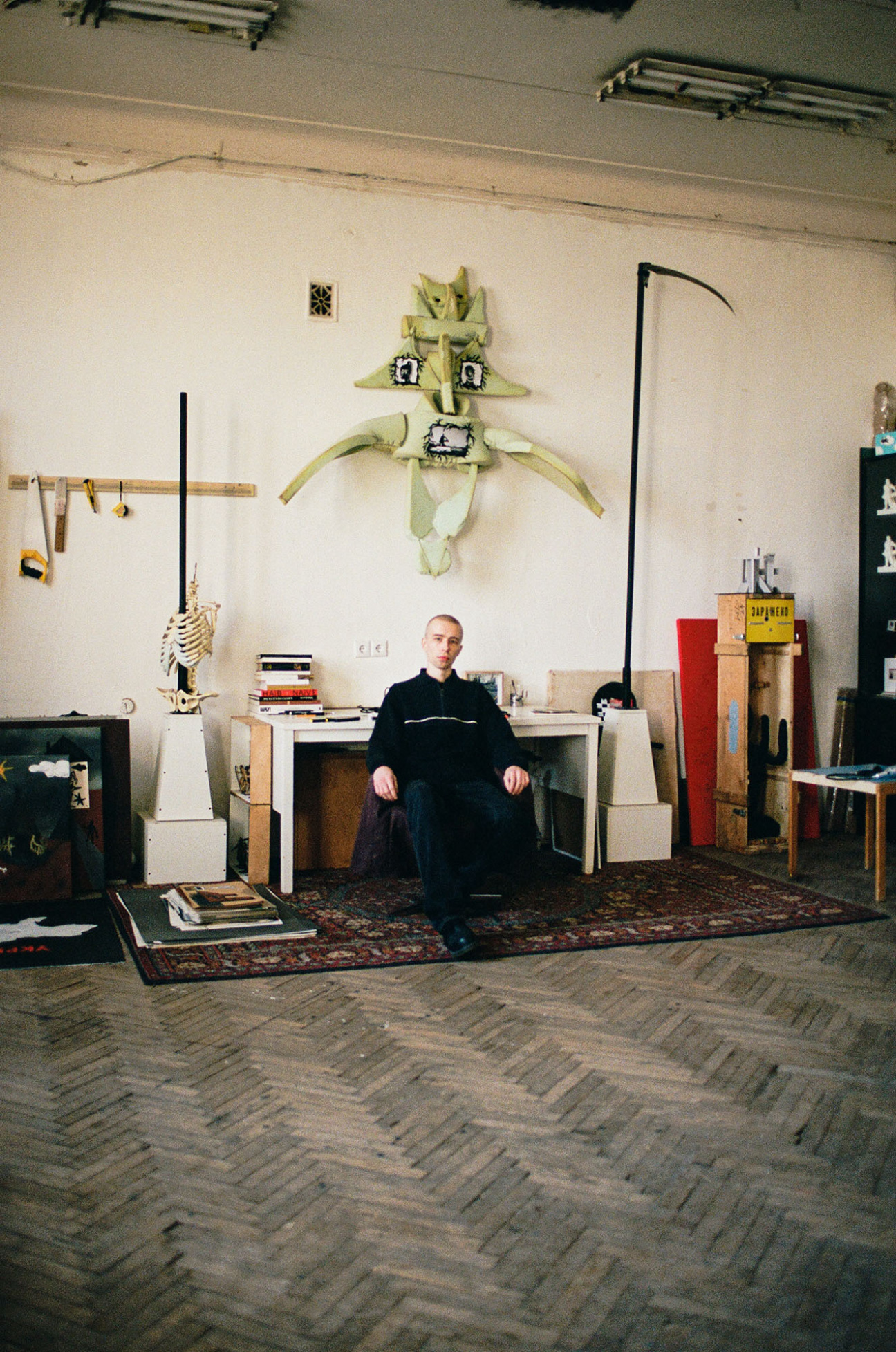
CULTURED: Has your way of working changed during the war?
Bolsa: I gave up painting almost completely. Since the beginning of the war, I started working with as many different media as possible. I used to find things in the trash and think about what I could make of them. When I left Kyiv, I came to the village and there were no paints. So I just worked with what the village had—wood—making toy monuments out of the material.
Every time I came to the village before the war, I looked through my toys and my children's books. This time I did the same. They remind me of events that happened in my childhood, both negative and positive. And now, this war context, this war trauma, is added to it. I am a bit bored of painting. I have painted too much. I find it more interesting to construct something with my hands.
CULTURED: What about those toys you collect?
Bolsa: It's a gestalt from my childhood. I couldn't afford to buy toys because I didn't have the money, but I had friends who had more money and more toys and I was very jealous of them. When I came to Kyiv and I went to the Petrovka Market, I saw a cow and a pig and I bought the two for 10 hryvnias. I had so many positive emotions, more than buying an iPhone, so I think that I closed the gestalt. I used to not be able to afford it, but now I can. I started the whole collection with toys.
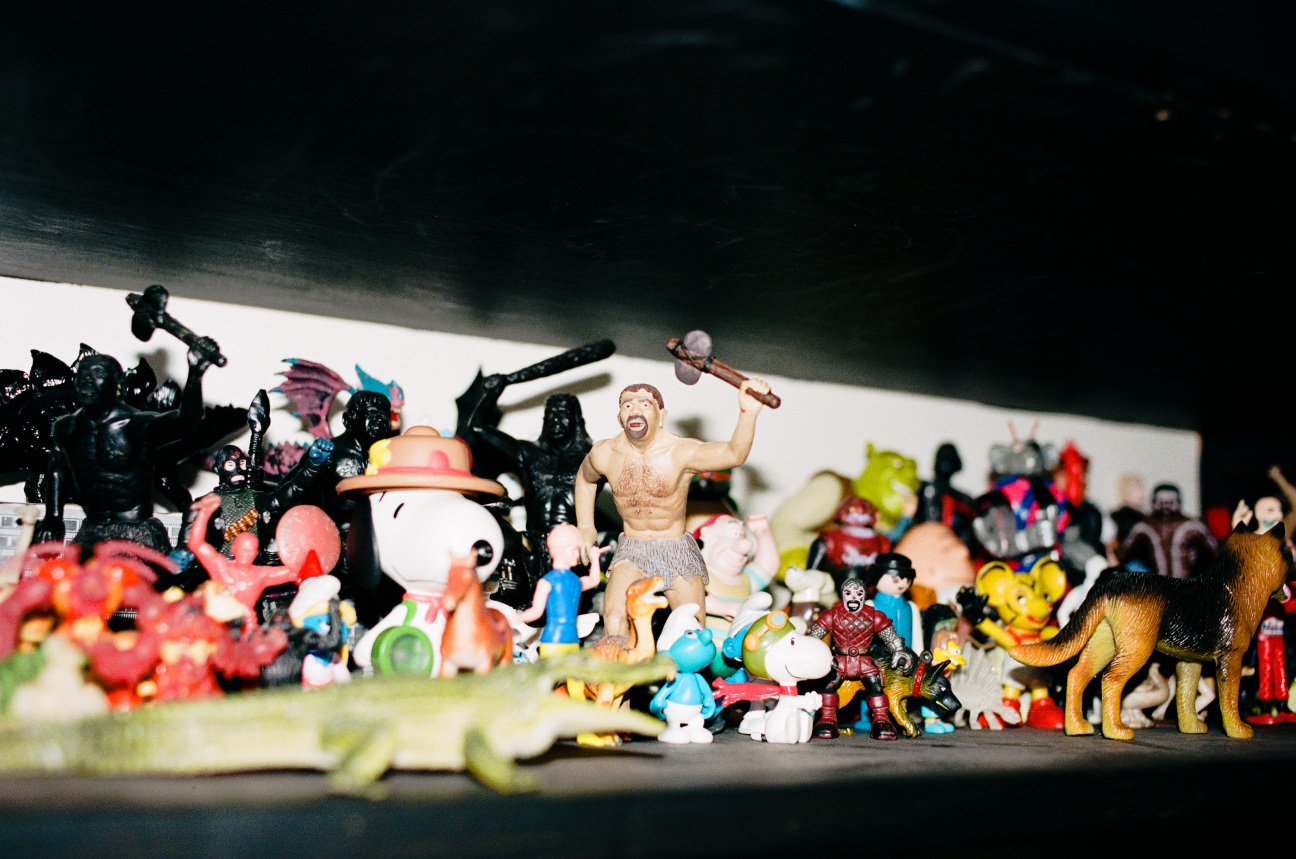
CULTURED: What are you working on now and what exhibition projects do you have in mind for this year?
Bolsa: I have several projects in development. One is about creating a new life with the help of rituals, like shaving. After ninth grade, I shaved my to move to a new commune and be accepted without feeling like an outcast. I initially looked at this process from a negative perspective, as if I had betrayed my views. But then I looked at it from a more positive side. It helped me understand how to exist in society, how to behave, what to look for, what conclusions to draw. That's why it's a rather cruel ritual, you could say, but it helped me.
I made a sculpture with my student ID card, and there are also photos of me with long hair and a figurine of my hair from below. I'm still working on a project about when I went down to a bunker during the full invasion. We have this cool Soviet bunker with stands, slogans, and rules of how to behave during a nuclear attack in a building where many artists have had their studios for quite a while. There was a stand with notebooks for medical aid and all that stuff. There was a notebook with empty entries, but it was signed by some employee of the institute. Every time I came down, I started to draw in this notebook and put it back in the stand when I came back up. I ended up with more than 60 drawings. I recently made an animation from these pictures.
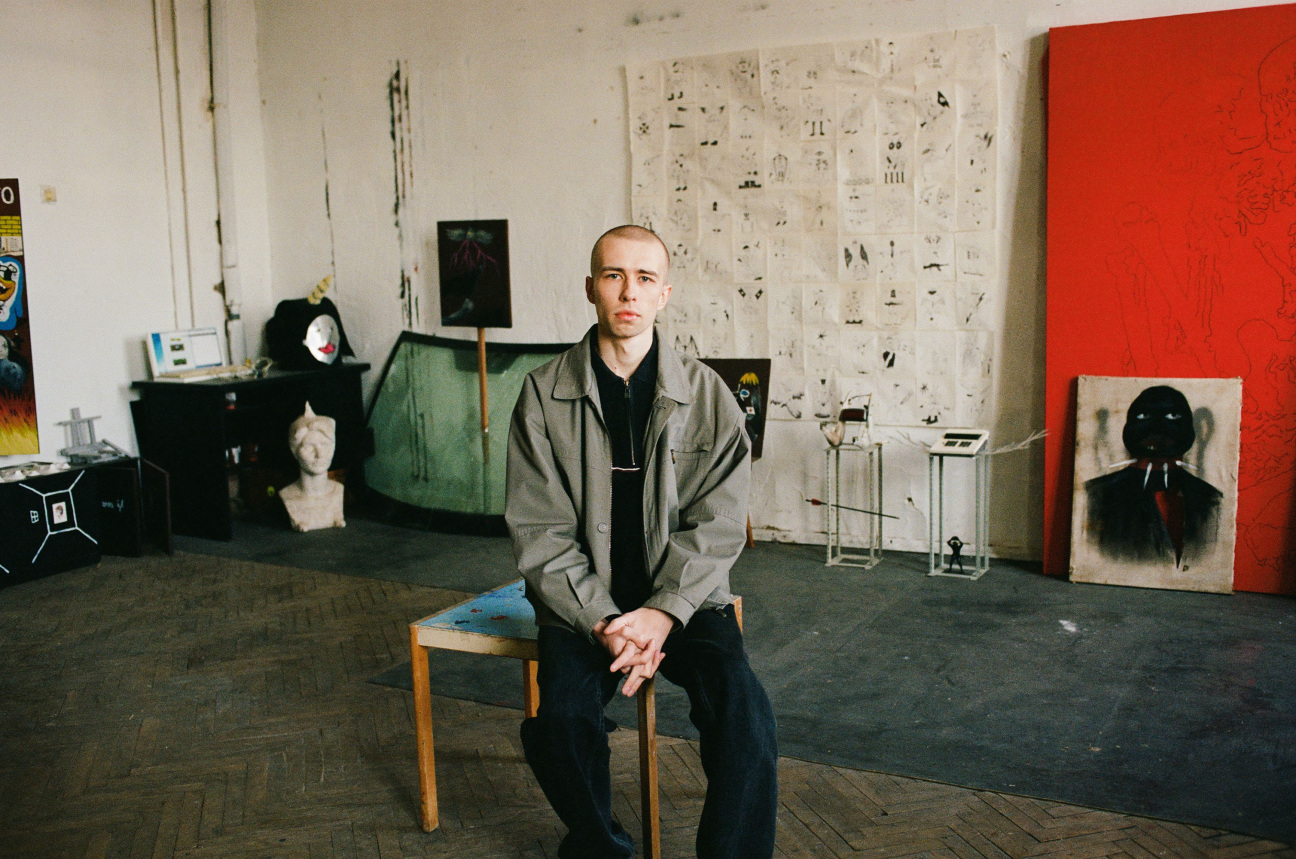
CULTURED: Do you take the subject matter for your art from your memories, or specific references that you come across in your life and record for yourself?
Bolsa: Mostly from real life. I used to work with imagination in the first year of my practice, but then I came more to reality. I decided to use my imagination and fictional stories as a tool for illustrating stories of life that have already happened.
CULTURED: What do you do in your free time?
Bolsa: I make art, and that's my free time.
CULTURED: How do you calm down?
Bolsa: Creating art is very calming.

CULTURED: What makes you excited?
Bolsa: I don't get to experience such states very often. I like the feeling when I've come up with something really cool, and I manage to do it as I intended. I have a lot of work that I don't even want to post anywhere.
CULTURED: Do you have an example?
Bolsa: I did a project about the interaction between Chervonohrad and Poland. In Chervonohrad, the main two options are to work in a mine or go to Poland to work. My mom goes to Poland, and she always brings back some sweets that are just, wow. I decided to make an alternate reality that when a Pole comes to work in Ukraine, he could also buy a souvenir and bring it to his relatives in Poland so that they could also rejoice at the coolness of Ukraine. I created three figurines: a black miner, a white miner, and a transparent miner. This is a symbol of the disappearance of the miners’ identities because the mining industry is no longer in the same condition as it used to be. The miner identity is disappearing because everyone wants to go to Poland or somewhere else rather than work hard in a mine.
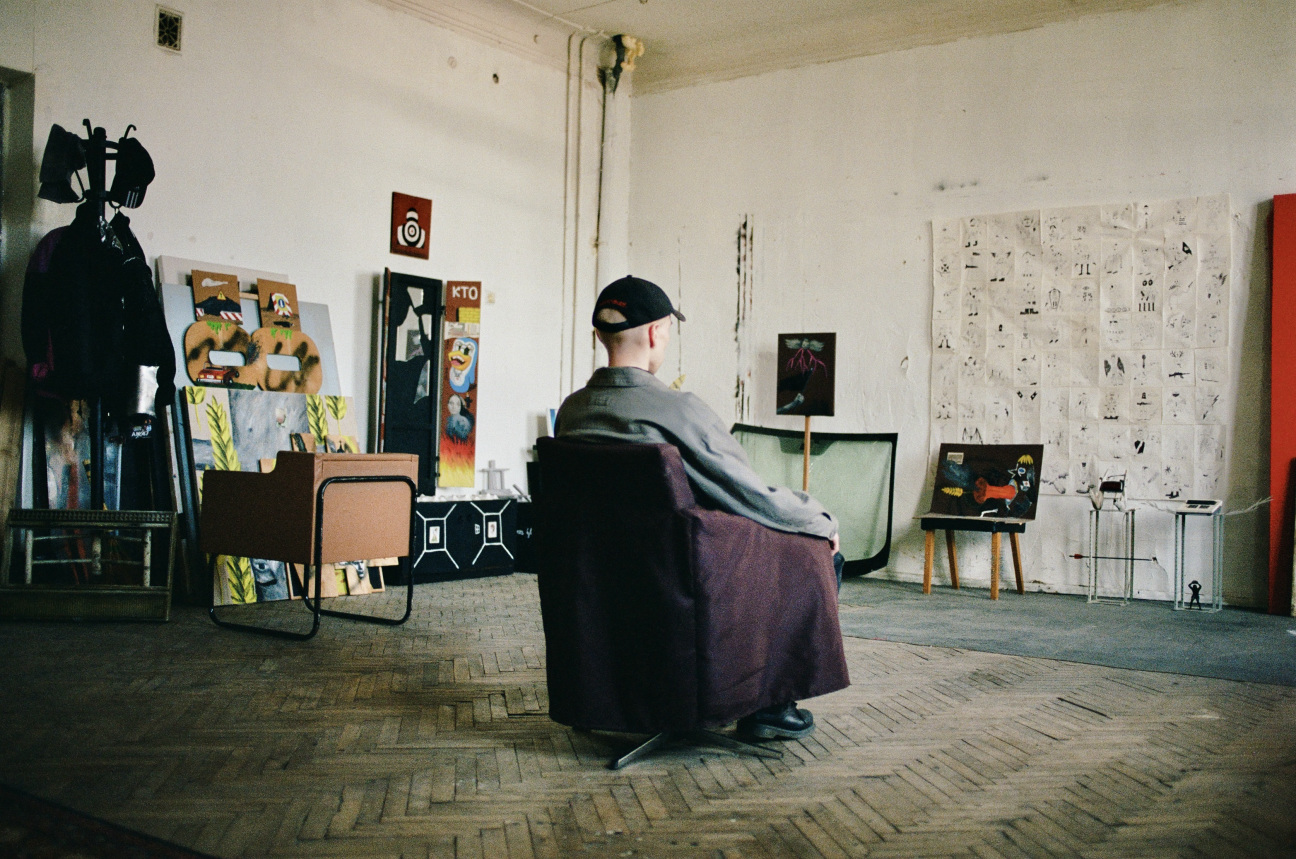
CULTURED: What inspires you?
Bolsa: Inspiration is a made-up term, like muse, because you can't work only when you have some kind of inspiration. I believe more in constant clear work with myself, with the material, with the environment, and I will always have something that comes from this inspiration, from the desire to work.
CULTURED: Tell us what you would like people to know about life in Kyiv now.
Bolsa: Even though Ukraine is in a terrible period of its history, our people are strong and continue to live, fight, and try to build a new way of life or exist in the old way as if nothing is happening. This helps us to cope with the war. We all need help, but our people are strong and we don't despair.



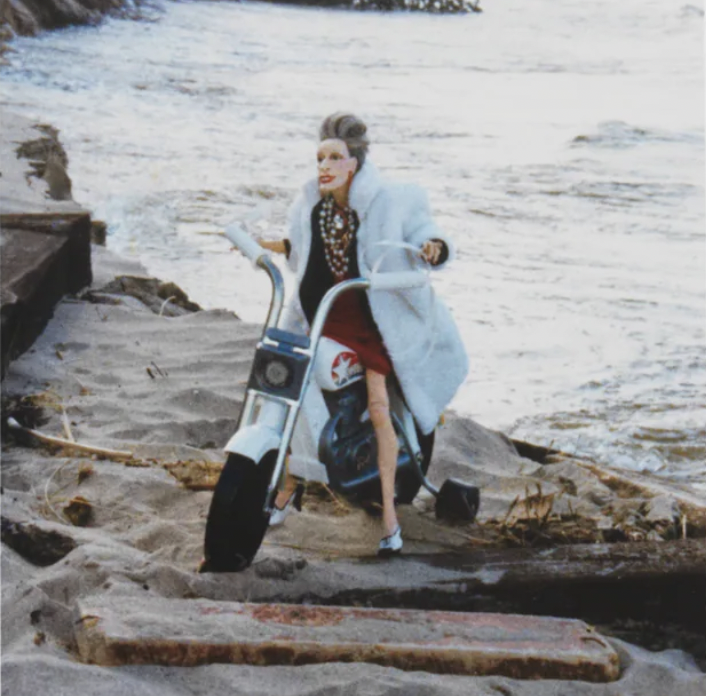


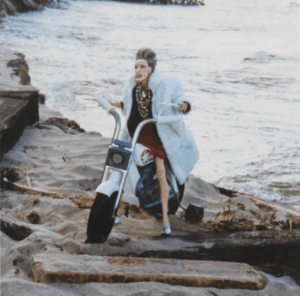



 in your life?
in your life?

